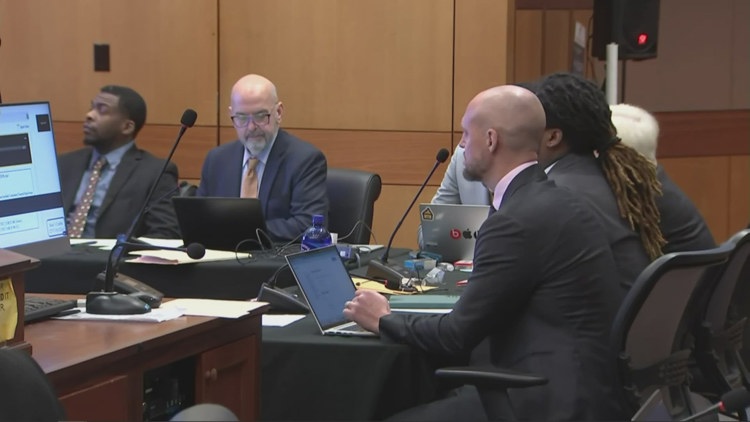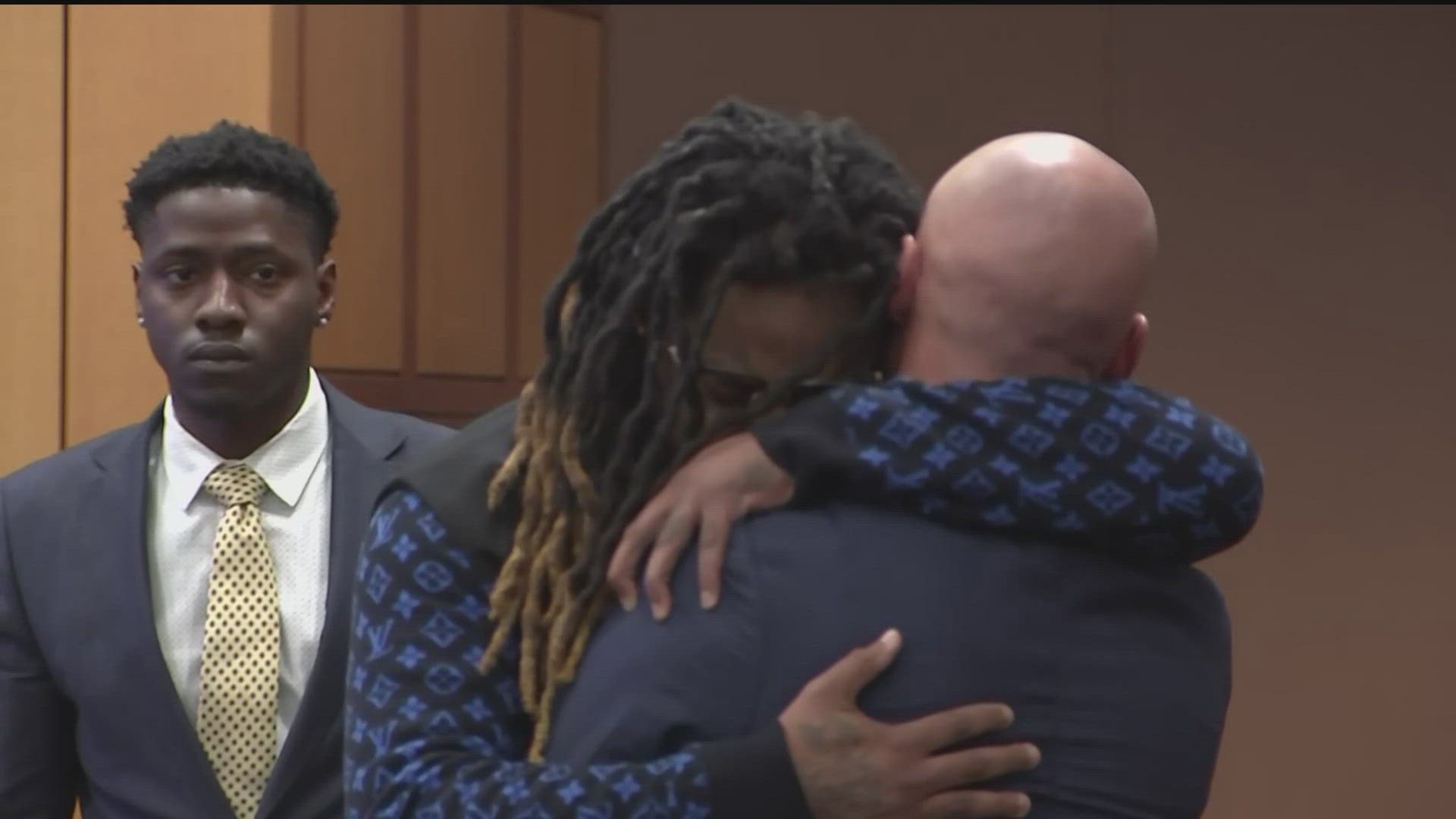FULTON COUNTY, Ga. — Jurors returned a verdict on Tuesday in the long-running RICO trial against the alleged "Young Slime Life," or YSL street gang.
On their fourth day of deliberations Tuesday, the jury determined the final two remaining defendants in the case, Deamonte Kendrick (aka Yak Gotti) and Shannon Stillwell, were almost entirely not guilty.
Kendrick was found not guilty on all the counts against him, and Stillwell was found guilty only on one count: Possession of a firearm by a convicted felon.
Stillwell was sentenced in court and will leave a free man -- he was given 10 years, only two to serve in jail, and he was credited with time already served, which amounts to more than ten years. The remainder of the sentence is probation.
Meanwhile, a status hearing for 11 other defendants who have not gone to trial is scheduled for later Tuesday morning.
11Alive has live footage of the court online here in the video player below, on YouTube and on 11Alive+, which is available on Roku, Apple TV and Amazon Fire TV. Text "plus" to 404-885-7600 to download 11Alive+ and stream it now.
Kendrick was hospitalized over the weekend following an altercation at the South Annex of the Fulton County Jail. The incident left Kendrick with minor injuries, including head wounds requiring staples. His lawyer, Doug Weinstein, confirmed Kendrick’s return to court and assured reporters of his client’s recovery.
Weinstein described Kendrick as calm and hopeful, saying, “He knows or at least hopes and is confident that he’s going to be out soon.”
The trial has centered on accusations of murder and gang-related activities, with prosecutors alleging YSL is a criminal organization. The defense maintains that YSL is a legitimate music label founded by rapper Young Thug, who was the highest-profile defendant in the case. Young Thug left jail in Cobb County in October after more than two years of being held without bond, after he successfully maneuvered with a partial guilty plea for a more favorable sentence directly from Judge Paige Whitaker than what was being offered in deals by prosecutors.
Over the past year, prosecutors presented evidence such as police testimony, social media posts, and song lyrics to bolster their claims. Defense teams have countered, emphasizing the lack of concrete ties between the defendants’ artistic expressions and alleged criminal actions.



